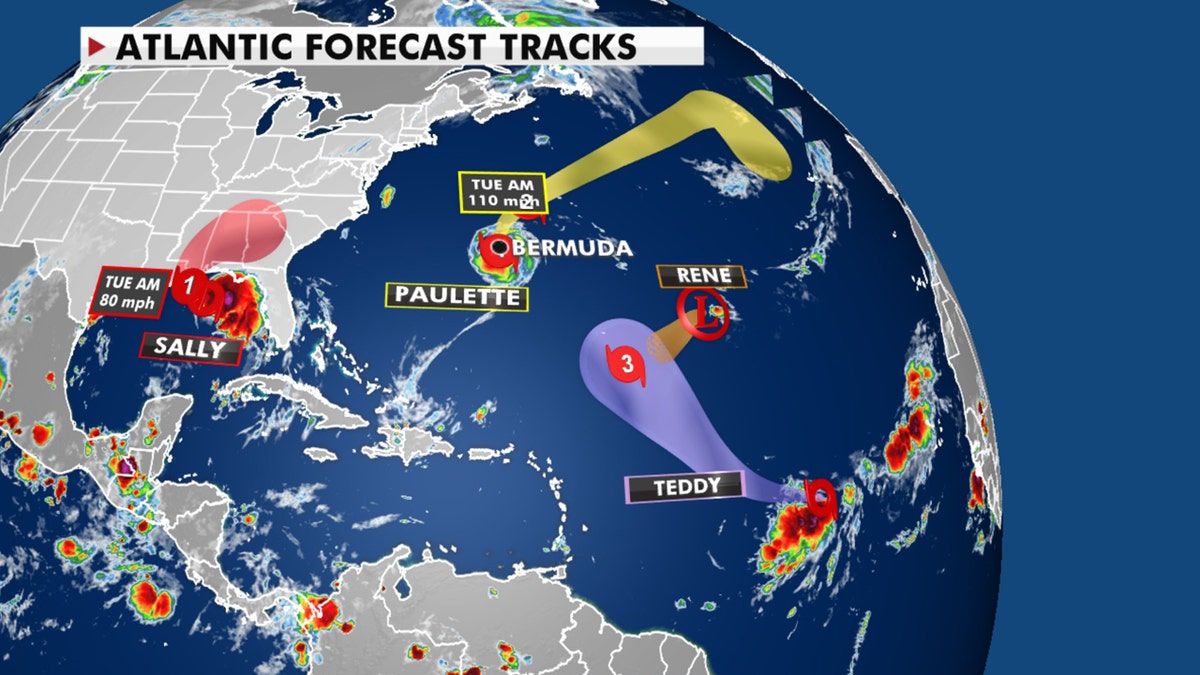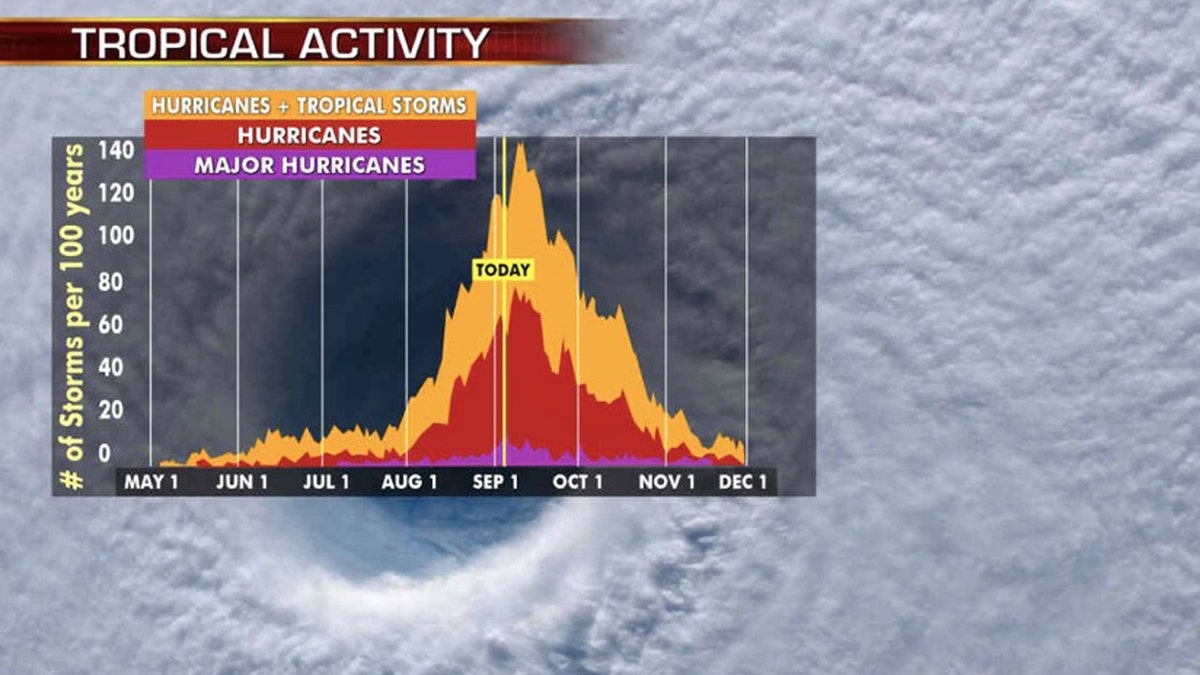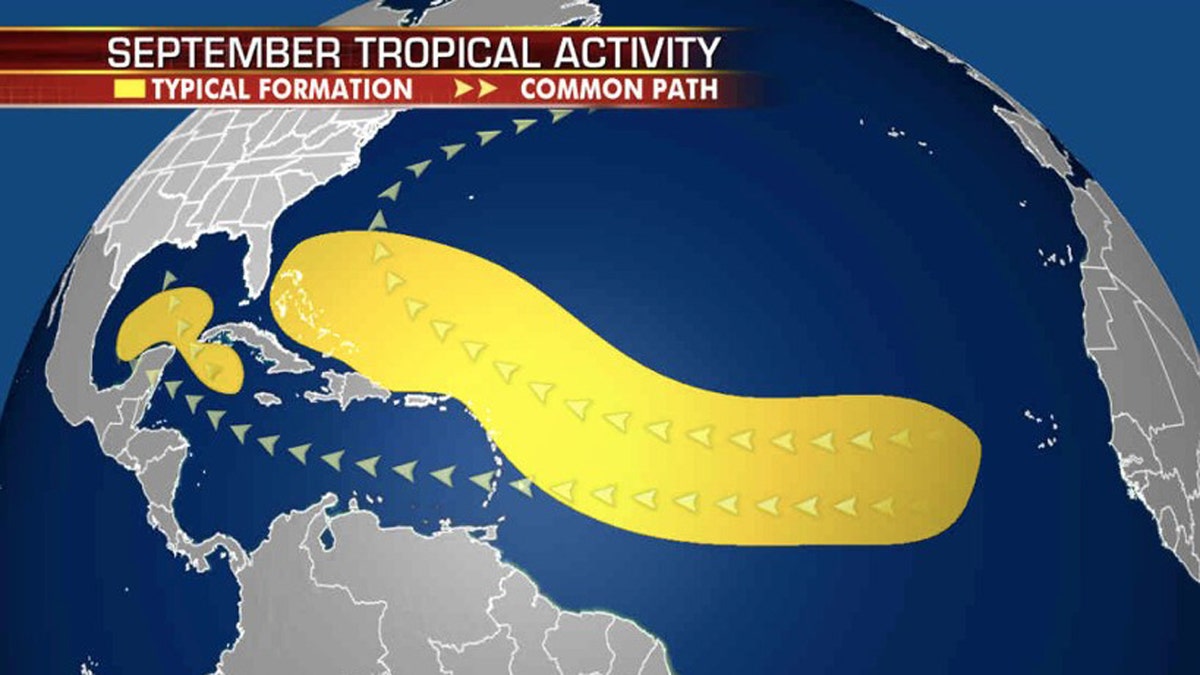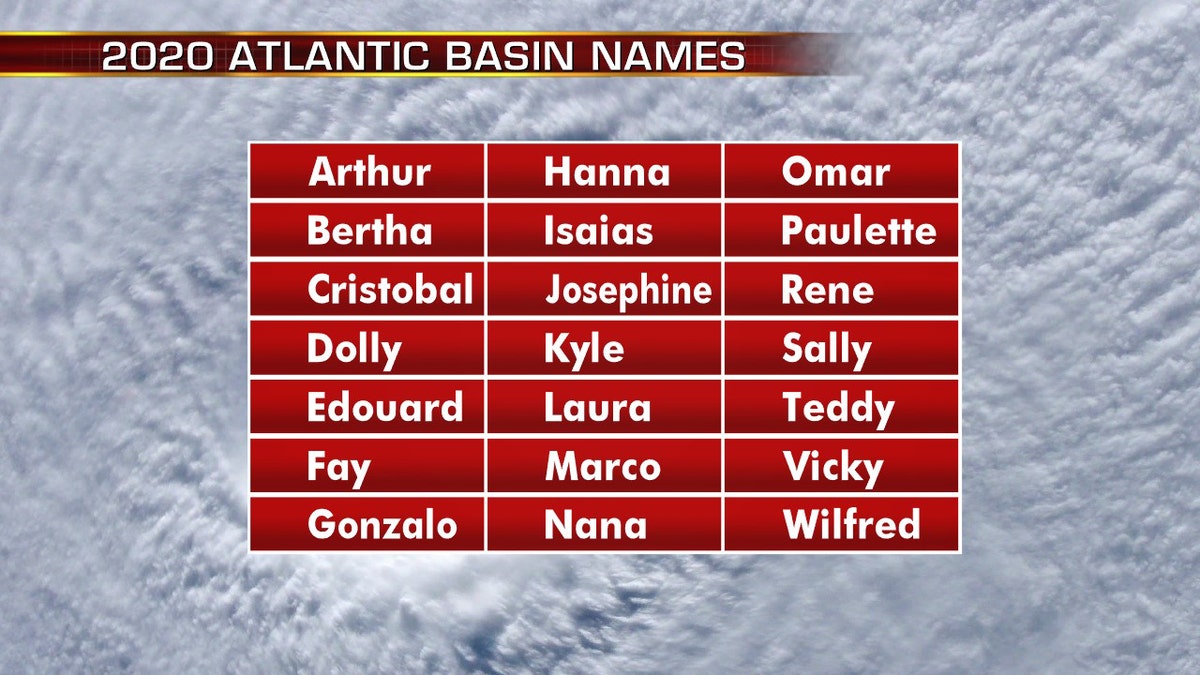National forecast for Monday, September 14
Fox News senior meteorologist Janice Dean has your FoxCast.
The busiest month of the Atlantic hurricane season is proving to be just that.
As if one hurricane targeting the Gulf Coast of the United States and another moving directly over Bermuda on Monday wasn't enough for forecasters, two tropical storms also formed within hours of each other.
The U.S. National Hurricane Center (NHC) in Miami said Tropical Storm Vicky formed just a few hours after Teddy came together in the Atlantic Ocean on Monday morning.
The latest burst of activity marks only the second time in recorded history that five or more tropical cyclones have existed simultaneously in the Atlantic basin.

A look at the various tropical systems across the Atlantic basin on Sept. 14, 2020. (NOAA/GOES-East)
Eric Blake, a hurricane specialist at the NHC, said on Twitter the only year with a higher number is September 1971.
"I cry uncle. 2020 please stop! Storms everywhere," Blake tweeted.
Forecasters at the NHC said that Vicky is packing winds of near 45 mph as it moves northwest at 6 mph. The storm is located about 250 miles west-northwest of the Cabo Verde Islands.
Vicky is forecast to continue moving to the northwest through Wednesday.
"Little change in strength is expected during the next day or so," the NHC said. "Weakening is expected to begin by Tuesday night and Vicky is forecast to degenerate to a remnant low on Thursday."
Vicky is expected to be short-lived as the 20th named storm of the season and have no impacts on land.
BERMUDA ENTIRELY IN HURRICANE PAULETTE'S EYE AS STORM LASHES ISLAND
Tropical Storm Teddy is located about 1,250 miles east of the Lesser Antilles. The storm has maximum sustained winds at 40 mph. It is expected to strengthen into a hurricane in the next couple of days.

Tropical activity in the Atlantic basin on Sept. 14, 2020. (Fox News)
"Steady strengthening is forecast during the next few days, and Teddy is forecast to become a hurricane by Tuesday night," the NHC said.
Teddy is expected to become a major hurricane of at least Category 3 strength by Friday, according to forecasters.
Large swells from Teddy were forecast to reach the northeastern coast of South America and the Lesser Antilles by Wednesday, which could cause life-threatening surf and rip current conditions.
CLICK HERE FOR MORE WEATHER COVERAGE FROM FOX NEWS
The three other active named storms are Hurricane Paulette, Tropical Depression Rene, and Hurricane Sally. Paulette is impacting Bermuda while Sally is nearing the Gulf Coast. Rene is not expected to bring hazards to land.
In the Pacific Basin, forecasters at the NHC are also monitoring Tropical Storm Karina, an eighth system overall.
Karina is moving over the eastern Pacific Ocean Monday morning. The storm is forecast to continue moving northwestward over the next several days, with gradual weakening expected to begin by Tuesday.
Teddy and Vicky continued a trend seen by other storms in the Atlantic this season of being the earliest 19th and 20th named storms, having the earliest "T" and "V," names, according to Colorado State University hurricane scientist Phil Klotzbach.
Historically, September produces the most Atlantic Ocean basin tropical activity. The current name storms have broken records for how early they formed for their respective letter, continuing a trend during the 2020 Atlantic hurricane season.
NOAA forecasters are now calling for up to 25 named storms with winds of 39 mph or higher; of those, seven to 10 could become hurricanes. Among those hurricanes, three to six will be major, classified as Category 3, 4 and 5 with winds of 111 mph or higher.

Hurricane season's busiest month is September, with activity peaking on Sept. 10. (Fox News)
That's far above an average year. Based on 1981-to-2010 data, that is 12 named storms, six hurricanes and three major hurricanes.

Where tropical storms typically develop during the month of September. (Fox News)
So far this year, there have been 20 named storms, including seven hurricanes and of those, one major hurricane.
CLICK HERE FOR THE FOX NEWS APP
The 2020 Atlantic hurricane season runs from June 1 to Nov. 30 and includes the names Arthur, Bertha, Cristobal, Dolly, Edouard, Fay, Gonzalo, Hanna, Isaias, Josephine, Kyle, Laura, Marco, Nana, Omar, Paulette, Rene, Sally, Teddy, Vicky and Wilfred.

The names for the 2020 Atlantic hurricane season. (Fox News)
There is only one more name left this season: Wilfred. After that, we will move to the Greek alphabet for only the second time in history.
Fox News' Janice Dean, Adam Klotz and Brandon Noriega contributed to this report.









































